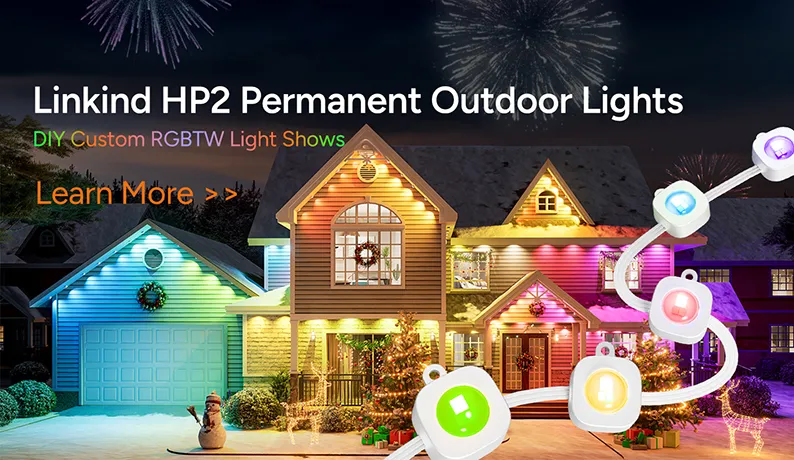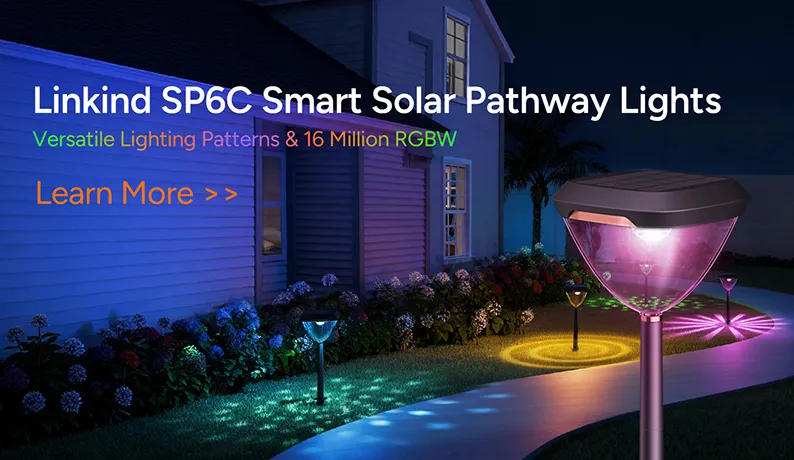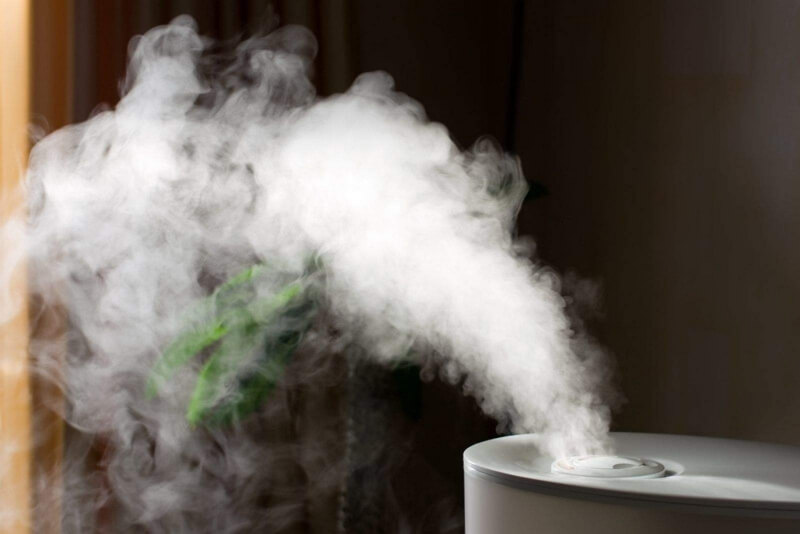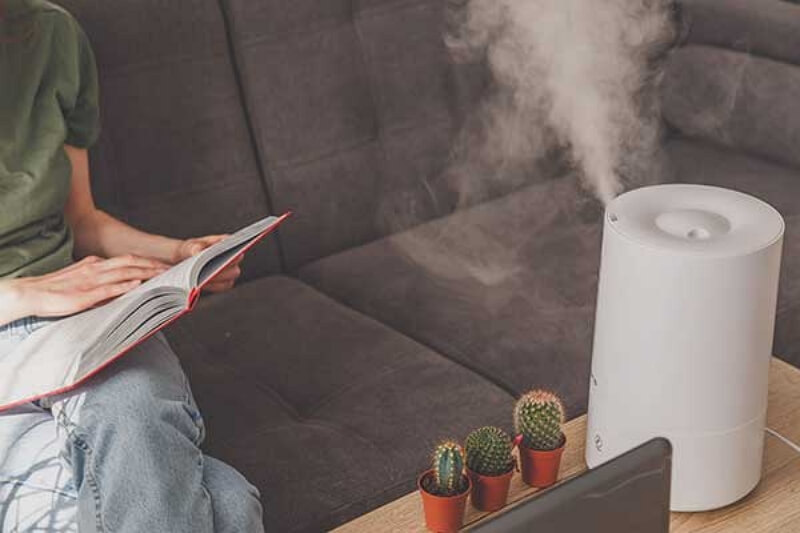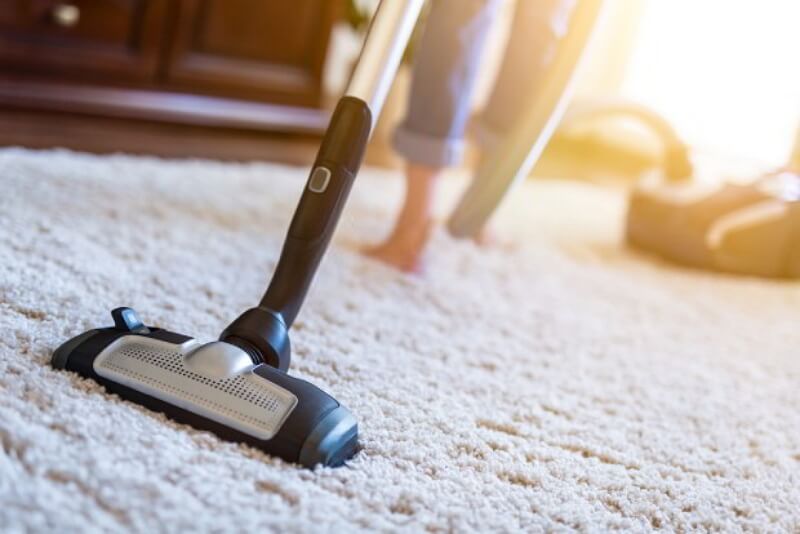The quest for ensuring optimal indoor air quality and comfort is increasing. That's where the role of humidifiers has emerged as a pivotal one. These devices have proven to be indispensable in maintaining the right balance of moisture in the air, preventing a range of discomforts and health concerns stemming from excessively dry environments. Due to remarkable efficiency, quiet operation, and widespread adoption, the ultrasonic humidifier has risen to prominence among the array of options available to consumers.
What is an ultrasonic humidifier? How will it make your living space better and more cozy? This article will talk about ultrasonic humidifiers in detail, their pros and cons, and the best option available in the market.
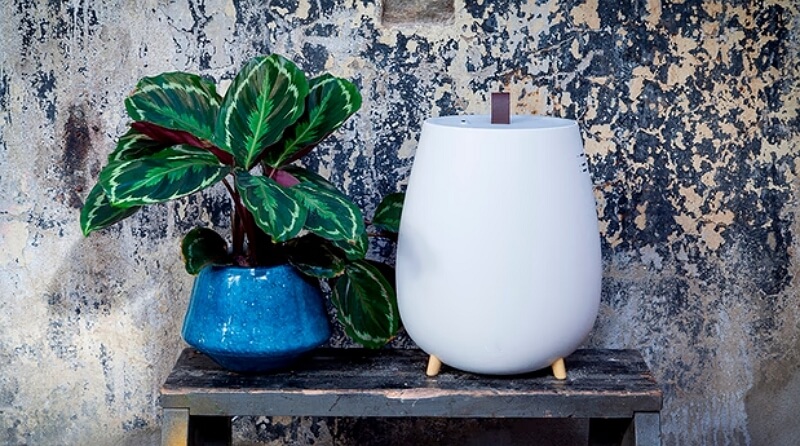

Part 1. What Is an Ultrasonic Humidifier?
Ultrasonic humidifier is a type of humidifier that uses high-frequency vibrations to produce a very fine mist of water droplets. A small metal diaphragm vibrating at ultrasonic frequencies produces these vibrations in these humidifiers. The produced mist is then released into the air, increasing the humidity levels in your room.
Overall, there are several differences between an ultrasonic humidifier and a regular humidifier, but they are mainly distinguished based on the method of mist production.
Regular humidifiers typically use a fan or heat to evaporate water into the air, while ultrasonic humidifiers use vibrations to break water into tiny droplets, resulting in a finer mist. This often makes ultrasonic humidifiers quieter and more energy-efficient compared to traditional humidifiers.
The cherry on the cake - the lack of heating elements in ultrasonic humidifiers makes them safer, as there's no risk of hot water or steam being released. Due to these undeniable benefits, the ultrasonic humidifier market share is going to observe gains at nearly 8% up to 2032.
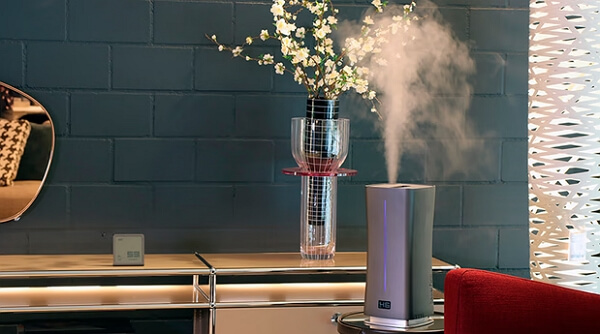

Part 2. How Does an Ultrasonic Humidifier Work?
To understand everything about “what is an ultrasonic humidifier”, you should also learn its working mechanism. Ultrasonic humidifiers employ advanced high-frequency technology to operate. There's a metal diaphragm within the humidifier that's set into motion by high-frequency vibrations. These vibrations are typically beyond the range of human hearing, commonly referred to as ultrasonic frequencies. As soon as these vibrations are transmitted through the water in the humidifier's reservoir, an intriguing phenomenon occurs.
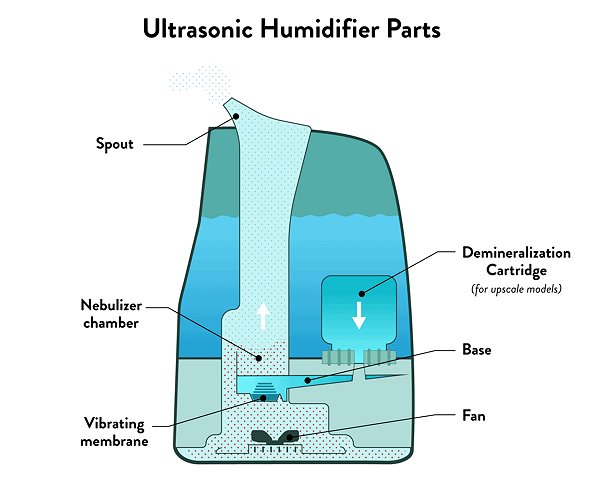

The water particles in the reservoir attempt to move in sync with the rapid vibrations, but they can't keep up due to the swift nature of the vibrations. As a result, the water's cohesive forces weaken, causing it to break down into minute droplets. These tiny droplets are so small that they transform into vapor almost instantly. It's at this point that the ultrasonic humidifier truly shines.
The mist or vapors then disperses into the surrounding environment, rapidly creating a cooler, more humid atmosphere. You will find it particularly beneficial in dry conditions, where maintaining optimal humidity levels is important for your comfort and overall health.
Part 3. What Are the Pros & Cons of Ultrasonic Humidifiers?
Pros of Ultrasonic Humidifier
1. Safety for Pets and Kids
Ultrasonic humidifiers are safe to use around pets and kids because they do not involve hot water or heating elements. Unlike steam-based humidifiers, there's no risk of accidental burns. The water is transformed into a cool mist through ultrasonic vibrations, making it a safer option for your home, especially if you have curious children and playful pets.


2. No Ongoing Operational Costs
One of the notable advantages of ultrasonic humidifiers is their lack of ongoing operational costs. Unlike other humidifiers requiring filter replacements, wick changes, or specialized water treatments, ultrasonic humidifiers have minimal maintenance requirements. This is primarily because they don't rely on complex heating elements or filters that need regular replacement.
3. Energy Efficiency
Ultrasonic humidifiers consume less energy because they rely on ultrasonic vibrations to create mist, which doesn't involve heating water. The absence of heating components significantly reduces power consumption, making these humidifiers an eco-friendly option for maintaining comfortable indoor humidity levels without a notable increase in your electricity bill.
4. Quiet Operation
Surprisingly, ultrasonic humidifiers are known for their near-silent operation. The ultrasonic vibrations that generate the mist are inherently quiet, allowing these humidifiers to create a comfortable and soothing environment without producing disruptive noises. This makes them ideal for bedrooms, nurseries, and other quiet spaces where noise can be a concern.
Cons of Ultrasonic Humidifier
1. Prevention of Mineral Accumulation
The lack of a filter to counter mineral accumulation is a notable con of ultrasonic humidifiers. These devices transform water into a fine mist through ultrasonic vibrations, which can release minerals present in tap water into the air. Over time, these minerals can settle as fine white dust on surfaces within the room. While this dust is generally harmless, it may necessitate more frequent cleaning and maintenance to keep the indoor environment dust-free.
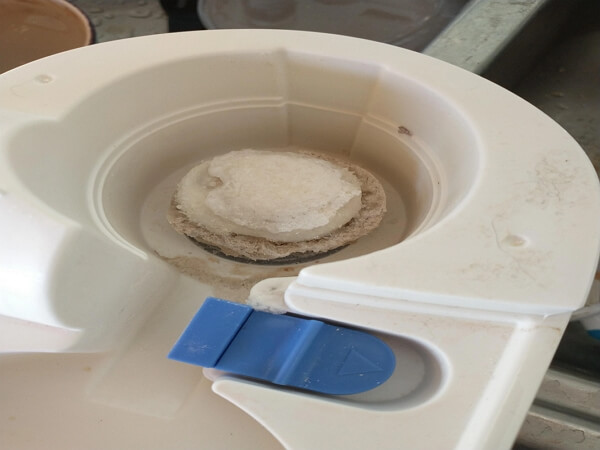

2. High Initial Costs
Ultrasonic humidifiers can be more expensive upfront than other types of humidifiers. Their advanced technology and quiet operation often come with a higher price tag. While their energy efficiency and lack of ongoing operational expenses may offset the cost, the initial investment might deter you.
Bonus 1: Choose the Right Ultrasonic Humidifier!
The AiDot Ganiza Z200 Ultrasonic Cool Mist Air Humidifier brings advanced functionality and user-friendly features to your indoor environment. With compact and lightweight design, this sleek device seamlessly integrates into your living space while efficiently enhancing humidity levels.
Powered by 30 watts and connected to an AC power source, the AiDot Ganiza Z200 humidifier provides a runtime of up to an impressive 50 hours. It has a substantial floor area of 323 square feet and is well-suited for various room sizes. This humidifier also boasts a unique feature of operating at a mere 26dB, ensuring super quiet operation that won't disrupt your peace.
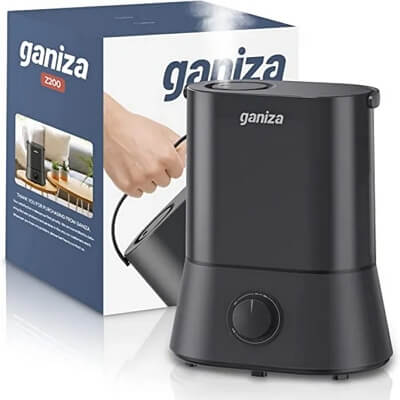

- Large Capacity & Long Runtime
- Highly Efficient Humidification
- Quiet & Calming Working
- Visible Water Level
- A Handy Handle for Convenience
- No More Wet Surfaces
[Bonus Now]: Here is an exclusive coupon code only found in blog posts. Save it now (AiDotBG01) and get 10% off at AiDot mall!
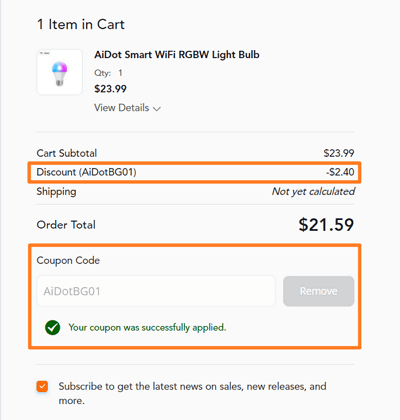

Bonus 2: FAQs About Ultrasonic Humidifier
1. What is the healthiest type of humidifier?
Cold mist humidifiers are generally considered healthier and safer options. These are safe to use around kids or pets due to the absence of any heating spot.
2. Can you use tap water in ultrasonic humidifier?
Yes, you can easily use tap water in an ultrasonic humidifier. Still, it's generally recommended to use distilled or demineralized water to prevent the release of minerals and impurities into the air. Tap water has a high mineral content and can lead to the dispersion of white dust. The minerals may also accumulate in the humidifier, affecting its efficiency and potentially creating a breeding ground for mold and bacteria.
3. Are ultrasonic humidifiers safe?
Ultrasonic humidifiers are generally safe for adding moisture to the air, but you should consider a few things. They use ultrasonic vibrations to produce a fine mist, but if not cleaned regularly and properly, they can harbor mold and bacteria, affecting indoor air quality. But you can use distilled or demineralized water to prevent the release of impurities into the air, making ultrasonic humidifier a safe choice.











